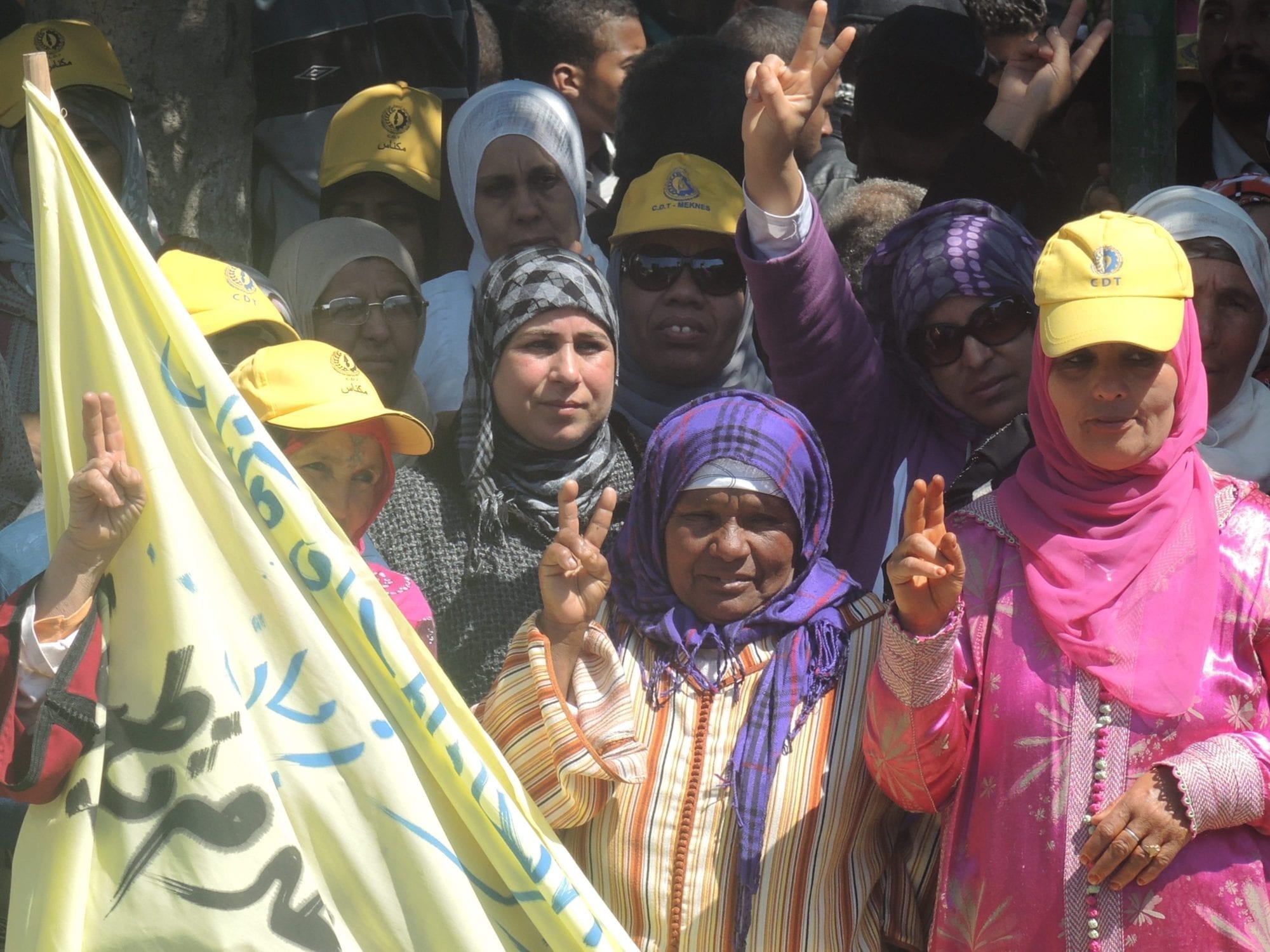
Agricultural workers in Meknes, Morocco, now have a first-ever collective bargaining agreement. Credit: Hind Cherrouk/Solidarity Center
The Confédération Démocratique du Travail (Democratic Labor Confederation, CDT) and the agro-industry employer, Les Domaines Brahim Zniber, signed a collective bargaining agreement today that covers nearly 1,000 agricultural workers on five large farms in Morocco’s fertile Meknes region. The pact follows a multi-year campaign by the CDT, with support from the Solidarity Center, to help workers in orchards, olive groves and vineyards improve their working conditions.
Under the agreement, agricultural workers receive bonuses if their work exceeds the norm. The agro-industry employer will provide safety equipment and social benefits, enabling workers to access worker compensation and other fundamental protections.

Moroccan Labor Minister Abdeslam Seddiki (standing, center), employer Rita Zniber and Bouchta Boukhalfa, the leader of CDT in Meknes (standing, left), take part in the signing ceremony. Credit: Colette Young/Solidarity Center
Crucially, this agreement– formalized during a ceremony with 400 workers, employers, labor leaders and government officials taking part–will guarantee their right to freedom of association and guarantees the rights of parties and social peace. In addition, this agreement will benefit all agricultural workers, especially women workers, who are active in this sector and represents an important percentage of the workforce. Les Domaines Brahim Zniber and the CDT are building bridges to extend similar agreements to other regions in Morocco.
“This agreement will ensure stability in employment,”says Abdelali Bouhiyadi, a union representative. “Even seasonal workers will keep their jobs and stay on the farms. Seasonal workers will be integrated gradually and the agreement will ensure social peace because a committee on conflict and negotiation will be established.”
Agriculture is a cornerstone of Morocco’s economy, with high-quality agricultural products, such as wine and olive oil, exported to Europe. Some 43 percent of workers in Morocco are employed in the country’s agriculture sector, and 40 percent are women.
“This agreement will allow us to have the opportunity to be trained in our jobs,” says Hayat El Khomssi, an agricultural worker.
The agreement is an important contribution to sustainable development and economic stability in Morocco, and will serve as a model for others to follow in Morocco and throughout the region. By taking this pioneering step and signing this agreement with the CDT, Les Domaines Brahim Zniber says it offers an example to other corporations that achieving world-quality products requires world-quality workers, and investing in workers is the most important investment corporations can make.
CDT leaders say this victory is an important step toward achieving the union’s vision of a sector-wide collective bargaining agreement for agricultural workers, one with the potential of improving the working conditions of all agricultural workers in Morocco.

